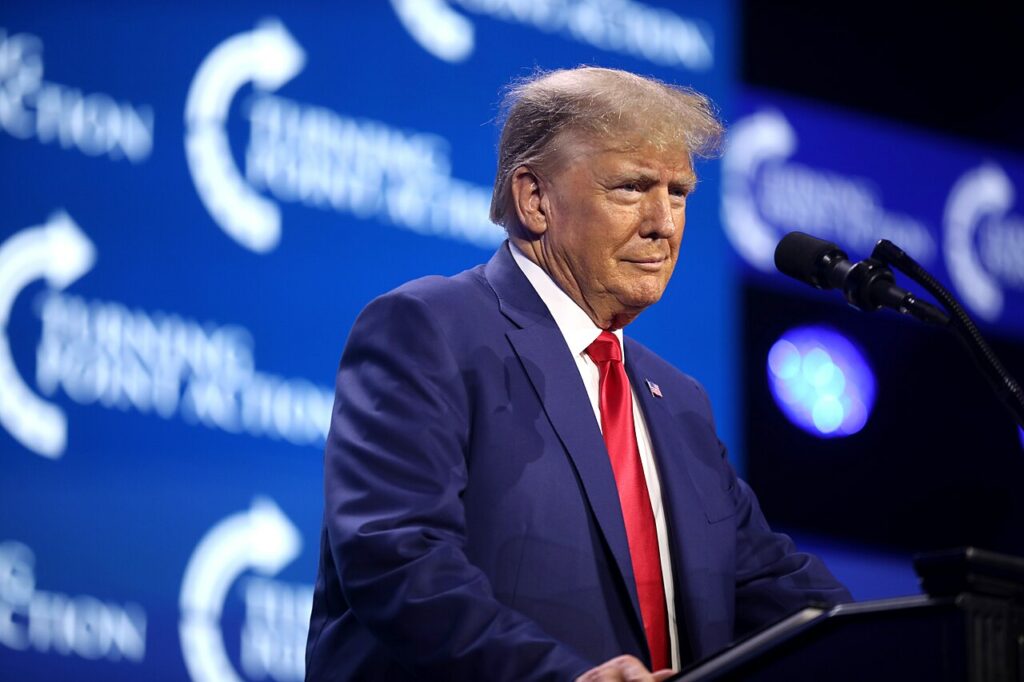
(Scypre.com) – As President Donald Trump concludes the first 100 days of his second term, the nation reflects on a period marked by aggressive policy shifts and significant public discourse.
President Trump prioritized immigration reform, signing numerous executive orders aimed at tightening border security. Notable actions include the suspension of the Refugee Admissions Program, the attempted termination of birthright citizenship, and the invocation of the Alien Enemies Act to expedite deportations of certain groups. These measures led to a reported 90% decline in border crossings and a 627% increase in ICE arrests compared to the previous administration.
The administration introduced sweeping tariffs, imposing a baseline 10% rate on all imports, with higher rates for specific countries. While intended to bolster domestic industries, these tariffs contributed to market volatility and a 14% decline in the S&P 500 since February.
In a bid to streamline federal operations, President Trump appointed Elon Musk to lead the Department of Government Efficiency. This department enacted significant cuts across various agencies, including the Department of Education and USAID, aiming to reduce what the administration deemed “wasteful” spending.
Recent surveys indicate a decline in public approval of President Trump’s performance:
An ABC News/Washington Post/Ipsos poll reports a 39% approval rating, the lowest for any president at this stage in 80 years.
A Pew Research Center survey shows 40% approval, with significant disapproval of tariff increases (59%) and government cuts (55%).
A YouGov poll for The Times reveals that only 11% of Americans feel better off since Trump’s return to office, with 61% believing the country is “out of control.”
Many Americans express concern over the administration’s economic policies. The combination of increased tariffs and market instability has led to fears of a looming recession, with 75% of respondents in a Reuters/Ipsos poll indicating such concerns.
While some praise the administration’s strict immigration stance, others criticize the humanitarian implications, including the separation of families and the deportation of individuals without due process.
The rapid implementation of executive orders and the sidelining of traditional legislative processes have raised alarms about the erosion of democratic norms. Critics argue that the administration’s approach undermines checks and balances.
Supporters of President Trump commend his decisive actions and fulfillment of campaign promises. However, opposition voices, including Democratic leaders and various media outlets, express concern over the administration’s direction, citing potential overreach and the marginalization of dissenting opinions.
President Trump has dismissed unfavorable poll results, attributing them to biased media coverage. He continues to emphasize his administration’s accomplishments, particularly in immigration and economic policy, and has signaled intentions to further pursue his agenda in the coming months.
The first 100 days of President Trump’s second term have been characterized by bold initiatives and significant controversy. As the administration moves forward, the nation remains divided on the efficacy and impact of these policies, setting the stage for continued debate and scrutiny